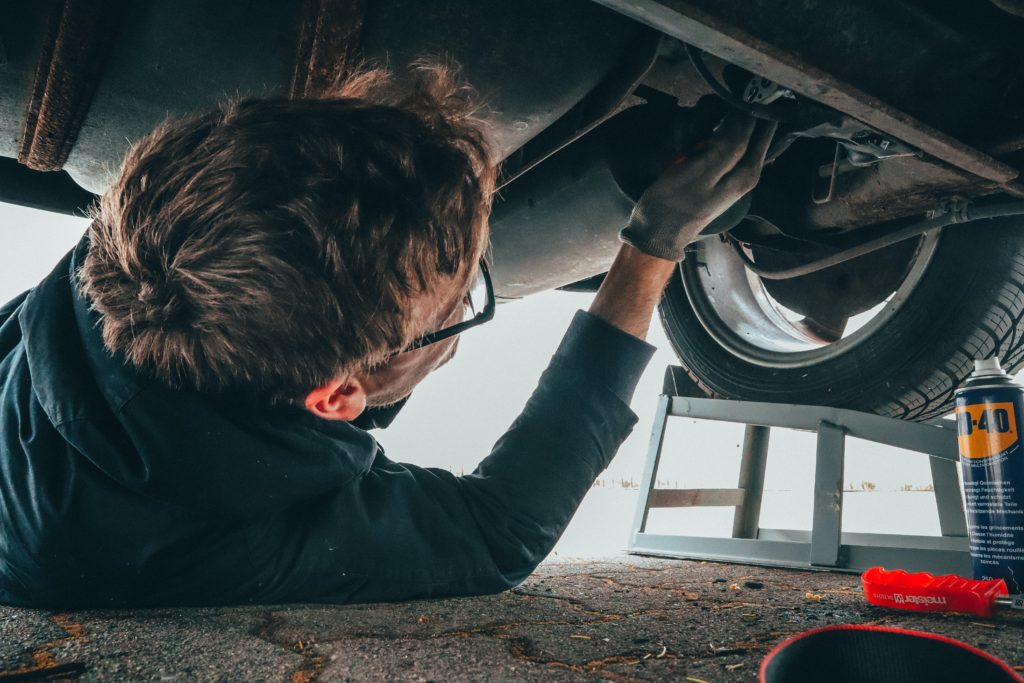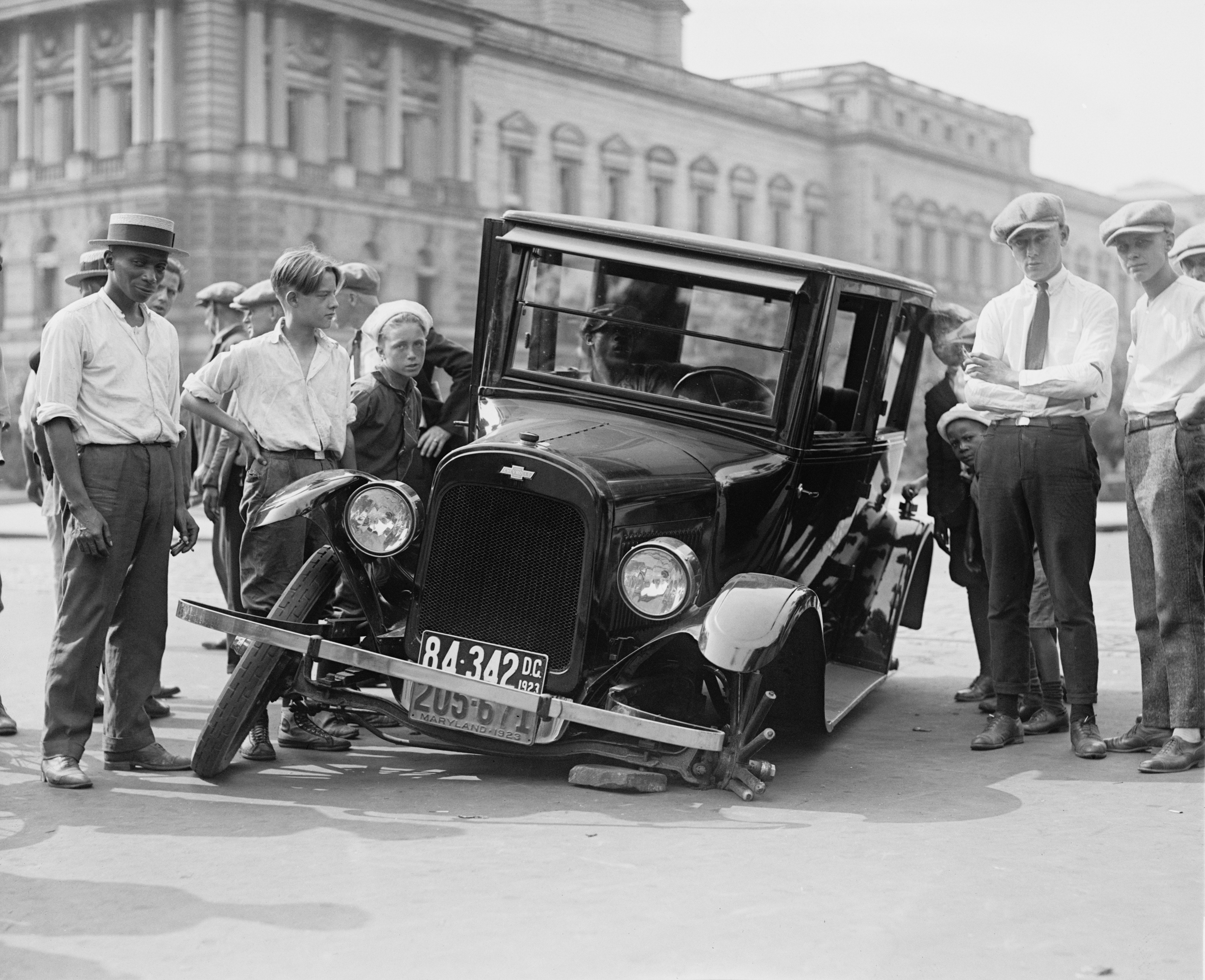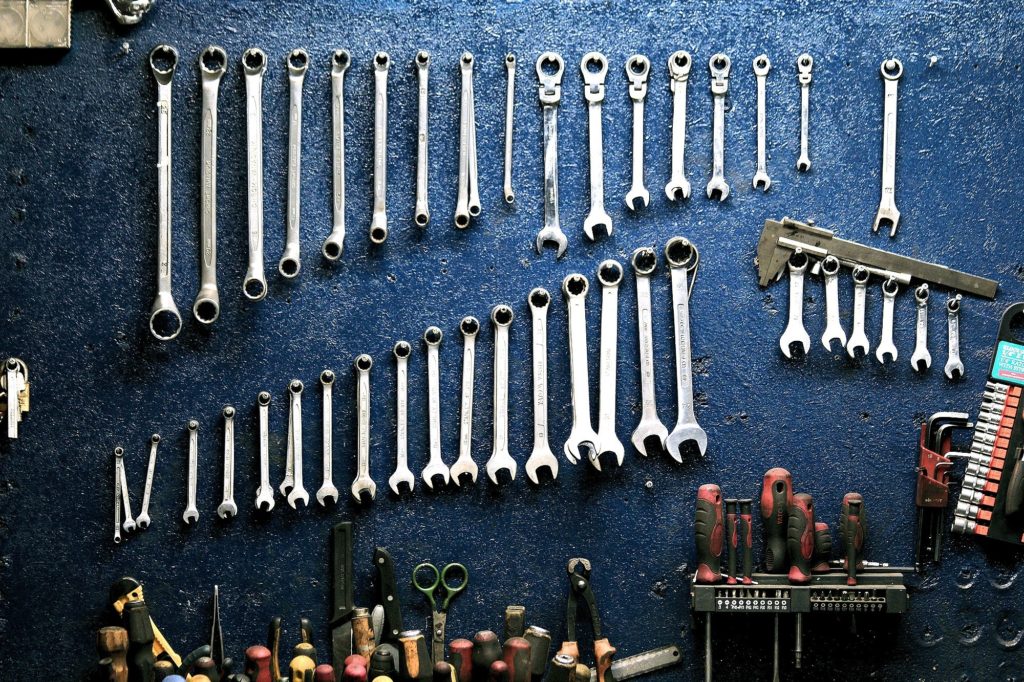These days, it seems as if I’m always behind on fixing issues with my cars. Just as I get one back to normal operation, a new problem reveals itself in another. Oddly enough, even if I had the luxury of buying new cars and paying others to fix them, I think I would still work on at least some of the maintenance and repairs. The choice would partially be driven by habit, and probably a little masochism, but mostly by some benefits that reach far beyond the confines of the engine bay. Reflecting on these benefits, I see it as a necessity for men to understand how to maintain and repair vehicles. I’ve considered some of the many reasons, both practical and personal, to learn how to fix cars, and here are my top six.
- It’s Good for Your Masculinity
Men are drawn to cars and their mechanical wonder, and working on them is as good for the man as it is the car. Through this admiration of cars, men can build camaraderie and respect among other men simply by understanding how to work on them. Knowledge and aptitude will also always be respected among good men, and the automotive field is just one area to build expertise. As you develop this skill, you will also invariably gain confidence in yourself. Working on difficult repairs tests your critical thinking, determination, and willpower. Every job you complete that was more challenging than the last gradually teaches you about your manhood; you are a force that can overcome any challenge thrown at you. This may sound hyperbolic—it is—but I’m here to tell you (truthfully) that one of the most difficult trials of my life was installing an Audi transmission in an apartment complex garage during my college years. Not a great place to undertake a major car project. Thankfully, my dad was there to help me through that one, but that didn’t make it any less of an ordeal. Once I had that under my belt, I knew two things: that I could handle any car repair (and certainly many life challenges), and that I would never again own an Audi if I’m the one fixing it. - It’s a Transferable Skill
When you work on cars, the knowledge gained isn’t limited to engines and gearboxes. Half the battle when fixing cars is diagnosing the problem a vehicle is having. You can only do this effectively if you exercise good critical-thinking skills. The more experience you gain determining the root cause of various symptoms, the more you will refine your thought process and learn to use sound logic through trial and error—that didn’t work, this did, repeat. Vehicles also have more that makes them go than just gasoline. There are various systems managing lubrication, cooling, hydraulics, HVAC, transmission of power, suspension, and electronics. Performing repairs and general maintenance will help you build a deep comprehension of all these subsystems and when you learn the basics about these, you’ll have the ability to repair a multitude of other machines. If you know how to work on your car’s HVAC, you can fix a refrigerator; if you understand an engine, you can maintain a lawn mower; if you can track down a faulty sensor, you can troubleshoot any basic electric appliance—you get the idea. Armed with all these skills, most men will find this knowledge helps them in the workplace. Men typically either work with their hands, or with concepts and things that exist in three dimensions. As such, working on a car when you have to manipulate components and operate in a complex space develops skills that are analogous to jobs most men will hold.

- Saves Lots of Money
One of the main things I constantly give gratitude for when it comes to my ability to work on vehicles is the monumental cost savings I enjoy. Just recently, a friend of mine sold his 2001 BMW 3 series. Why? BMW dealership maintenance costs were killing him. I’ve had multiple BMWs and Audis throughout the years and I’ve never once felt repairs were noticeably more expensive than any other brand when I’m doing the work myself. I’ve owned cars for about 11 years and I have saved literally tens of thousands of dollars in repair and maintenance costs. These cost savings will be similar for you and they are without considering the many problems your trained eye will see before they cause serious damage to your car and bank account. The great thing about these cost savings is that they can extend to your family if you want to help them out, which I encourage you to do. They can even pay you a discounted rate for your time if you need them to, though I just work for the cost of parts.
Finally, if you are very familiar with cars, you can confidently buy cars from a private party. This will save you thousands at each purchase. When I buy a car that needs some TLC off Craigslist for $5,000, I typically spend no more than $2,000 (and no more than 40 hours of work) to make it mechanically flawless. Since people are buying the same car for $12,000 from a dealer, I am essentially keeping $5,000 in my pocket. These days, with gas burning holes in your wallet, that’s $5,000 extra to spend on fuel before you break even on the purchase of your car. If you learn to tune your car’s engine, that affords even more gas savings. And don’t forget to include the cost savings from ongoing maintenance you’re doing yourself that can be put towards fuel instead. - You’ll Have a More Reliable Car
There is a common misconception that new cars are more reliable cars. This is far from the truth. No matter what type of manufactured device, there is an observable trend when considering graphs of number of failures versus time in service. What you find is that most product failures occur either very early on or very late in the service life, with significantly less failures around the midpoint of the average service life. This is because products with manufacturing defects will fail quickly and the products that survive are much more likely to last the lifespan of their individual components, with those failures occurring at the time their individual parts break from normal wear and tear. This curve is known as the bathtub curve. The home mechanic is confident he can make necessary repairs on an older vehicle and so he leverages the bathtub curve when selecting much of his equipment, including his car. In buying a vehicle that is around the 100,000 mile mark and has good service history, he eliminates all the vehicles he could have bought brand-new that ultimately would have had catastrophic failures due to manufacturing defects and poor engineering design (all of which may or may not occur within warranty).
TLDR; used cars with around 100,000 miles on the odometer have proven they have no manufacturing defects and are only limited by normal wear and tear on the components. This means if you find a used car with good maintenance history, it will likely have comparable, if not better, reliability than a brand-new car of the same make and model. Having a reliable car is of utmost importance to a man that depends on his car for his livelihood either in his commute, or as a working vehicle. Fewer breakdowns means less time off work, less roadside assistance (AAA is still essential), and more money in your pocket.
Additionally, with the knowledge of how to perform preventative maintenance, you can afford to change components and fluids at the regular intervals that most people often skip to save money. The extra benefit to having a vehicle that doesn’t break down is that you’ll be less inclined to upgrade to a vehicle possibly full of unknown problems. This will further add to your cost savings.

- Expands Your Tool Collection
When you decide to take on more responsibility and maintain and repair your vehicle, you’ll need tools to do it. This can seem overwhelming if you see another man’s tool collection and struggle to see how you could ever afford to replicate it. Simply expand your toolbox one job at a time. The first time you do any repair or service on your car, you’re going to have to buy some tools. Fortunately, instead of throwing your money away to a mechanic, you can pay yourself for the job and add some tools to your shelf, which you can use for many projects in the future—not limited to automotive work.
Speaking of tools, I recommend you invest upfront in an OBD-II scanner. They’re an affordable diagnostic tool that will save you much time and headache when identifying why the check engine light is on. Also, once you know you’re committed to maintaining your own vehicle, purchase a service manual for it—books are tools too. The two main aftermarket brands are Chilton and Haynes (I have Chilton for one of my cars and I hear it’s a little more detailed), but if you can get your hands on a factory service manual for a reasonable price, that’s the best.

- It’s Rewarding
Working on cars is generally challenging either in the physical nature of the work itself, or in mustering the determination required to complete a job. It’s not always fun or easy, but it’s always rewarding. It’s a truly great feeling to complete a repair job and reflect on the money you saved, the capability of your hands, and your ability to triumph over a challenge. This leads to pride in your ability and in your vehicle. Once you learn how to do a few things on your own car, you’ll be able to help friends and family with their car troubles. You can probably save them some money or get them out of a pinch, and they’ll be incredibly grateful for you. That’s a true reward.
Now that I’ve shared some of the top reasons why you should learn to work on vehicles, you may wonder where to begin. Well, starting this journey is as easy as changing a battery before moving on to progressively challenging tasks: air filters, fluids, spark plugs and wires, brakes, alternator, and so on. After that, you’ll be able to tackle anything—try a timing belt. YouTube is a great mentor if you have no one to answer your questions. Working on cars can be incredibly frustrating or it can be a relaxing activity; sometimes it’s what you make of it and other times an unfortunate setback takes it out of your control. However, it is certain to make you a better man; someone who can rely on themselves and who others can depend on. The ability to work on cars is a fine skill that will serve any man well.
If you liked this article and want to keep up to date with future posts, you can sign up for my newsletter below. I promise I won’t blow up your inbox.
